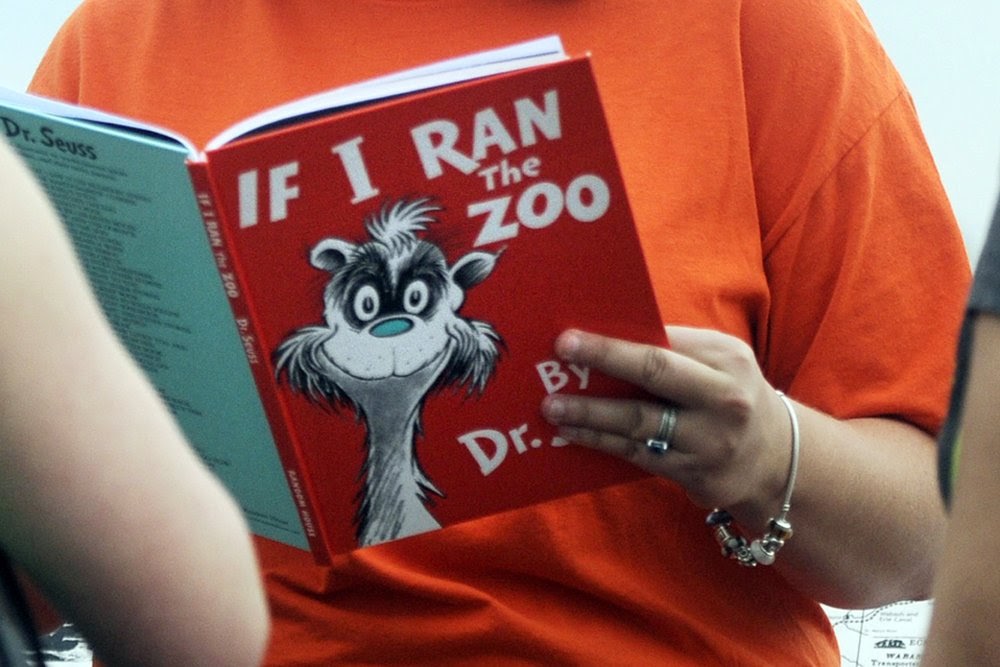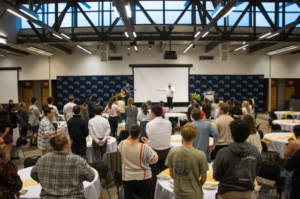What Canceling Dr. Seuss Means for Conservatives

Photo courtesy of The Associated Press
By Eduardo Castillon
Last week was Read Across America Week, a special occasion for educators to encourage children to enjoy reading. This year, however, it was announced that six books by beloved children’s author Dr. Seuss would stop being published. Dr. Seuss Enterprises, a company started by the author’s family entrusted to the legacy of his works, made a statement to The Associated Press saying, “These books portray people in ways that are hurtful and wrong. Ceasing sales of these books is only part of our commitment and our broader plan to ensure Dr. Seuss Enterprises’ catalog represents and supports all communities and families.” The books under scrutiny are And to Think I Saw It on Mulberry Street, If I Ran the Zoo, McElligot’s Pool, On Beyond Zebra!, Scrambled Eggs Super!, and The Cat’s Quizzer.
The response from many conservative media outlets was a number of articles decrying the decision to cease the publishing of these books as “cancel culture” at work. Many conservative pundits see the action as an attempt to cancel Dr. Seuss himself, opening themselves up to countless left-leaning publications to poke fun at them. Philip Bump said in one Washington Post article: “The vast, vast majority of his books, the ones without racist images or references, will still be sold. If Dr. Seuss’ profile wanes a bit as a result of the attention being paid to his drawings – the only form of ‘canceling’ at play here – to whom is harm being done?” The controversy surrounding the books has escalated from the “culture war” discussions around them.
The recent publishing decision did not come suddenly; there has been increasing analysis of potentially problematic themes in Dr. Seuss’ work. In 2017, Kansas City Professor Mr. Nel was already claiming the subtle racism of Cat in a Hat in his book titled: “Was the Cat in the Hat Black?: The Hidden Racism of Children’s Literature, and the Need for Diverse Books.” It is to this criticism that conservative media responded in defense by citing Dr. Seuss’ personal politics. “By all accounts he was a liberal-minded and tolerant man who hated Nazis and, as a political cartoonist, mocked the anti-semitism that was all-too-common in America during World War II,” wrote The Federalist. The discussion surrounding this “canceling” event is another hashing of the old arguments from the last issue that caught the interest of the news media.
But what does it mean to be “canceled”? According to more conservative writers, it may be the unfair shutting down of speech by easily-offended liberals. According to more liberal writers, it may simply be a way of holding those with publicly bigotted views accountable. Canceling is not a new phenomenon, however. In fact, societies throughout history have enforced the unwritten rules of their land, whether it be the trial of Socrates, the house arrest of Galileo, and even Senator Joseph McCarthy’s Red Scare campaign. After John Lennon said the Beatles would be “more popular than Jesus,” Christian groups across the U.S. protested the band, achieving an apology from Lennon. Kieran Green from Ricochet Media also noted this, saying “Over the millennia we’ve canceled a lot of people for a lot of different reasons. The common element is that they were all individuals who, in one way or another, challenged the status quo.” Cancellation, then, is the only representative of a country’s culture at the time. American culture has become increasingly fractured along red and blue, rural and urban lines. Where does this leave men of older generations and views like Dr. Seuss?
Some may remember actress Gina Carano being canceled for comparing being a conservative in Hollywood to the persecution of someone Jewish in 20th century Germany. Closer to home, pro-life speaker Abby Johnson’s scheduled talk with Cardinals for Life was canceled after student complaints about comments of hers supporting racial profiling and household voting. No matter how you frame it, these are losses for conservatives. If their speakers are on the receiving end of “cancel culture,” their ideas that haven’t been canceled won’t have a chance in the free marketplace of ideas. The free marketplace of ideas is a closely held ideal by conservative thinkers. The Daily Wire wrote about a top member of the Biden team in 2020 who was critical of the First Amendment’s protection of what he deemed as “hate speech.” But it wasn’t Big Government that shut down social media app Parler, but tech corporations Amazon, Apple, and Google after complaints of the app’s users celebrating the January 6 Capitol riot. Despite what the first amendment says, there are no neutral institutions in the free marketplace of ideas, only ones with power. Amazon has become the world’s largest book retailer, with one literary agent telling the Wall Street Journal, “They aren’t gaming the system. They own the system.” Some of Dr. Seuss’ works can easily have their publishing ceased because they are representative of a different, older culture than the one much of the country holds to today. The dominating culture of the day decides what gets canceled, whether it be children’s books or conservative commentators.







